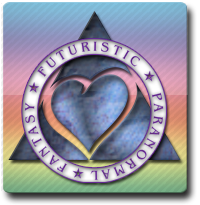 Quote of the Day from Crazy Lady at the Gym: "This frosty weather is messing with our gardens - it's not natural."
Quote of the Day from Crazy Lady at the Gym: "This frosty weather is messing with our gardens - it's not natural."I had no words. Which is saying a lot for me.
My spooky Halloween decorations look cool at sunset though, don't they?
Clearly I'm feeling quite rambly today. I'm looking at my list of potential blog topics and none look interesting. My writerliness might be getting sucked into this new story I'm working on. It's called (right now) "Sapphire" and it's an erotic contemporary romance. An editor requested to see it, so I'm getting it all finished up. It's interesting how, because it's contemporary, I seem to be getting more into the thoughts and emotions. My modern career-gal, Taylor, has far more neuroses and hang-ups than virginal Amarantha did. Of course, they both get ravished just the same. Some things transcend era.
The big question is what to write next. I'm trying this schedule of spending three months drafting a long work, setting it aside for a month to "cook," writing something short, then spending a month revising, then another short. October sees the end of this "writing a short" month. (Okay, I'm running about a week behind -have been since July. You can dock my pay.)
What this means is: time to work on the next big project. And I'm not sure what that will be. Oh yes, I have a list. I have several manuscripts in various phases from a jotted-down idea to one that's 36K complete. Allison asked me which is tugging at me and I confessed it's still The Body Gift. I haven't quite cut that umbilical cord.
Of course, if I get an offer on it, I'll almost certainly be diving back in with revisions. That's pretty much inevitable. I know that, so that might be feeding in.
At any rate, I'm contemplating going back to a nonfiction project. Part of me thinks that, since I don't have any other strong tuggings, I should pick the project that's most marketable. Then I think, who am I kidding? If I was good at picking marketable projects, I'd be Nora Roberts. KAK has a vote in for me to finish the 36K one, which I might. It's also probably the most unsellable project under the sun, so I'm waffling...
See? I warned you I'm in a rambly mood today. Say, I don't solicit comments often, but let's play Vote on the Next Manuscript!
Here's the list: (I'm keeping each description brief, so as not to unduly bias my judges.) (And, no Marcella, none of these are good loglines, I know.)
The Daughters (36K done) - Fantasy, lots of sex magic, about girls being manipulated by a cult
Writers Group story - Nonfiction, 12 intertwined stories about women in my first writers group and how they ended up
St. Johns love story - contemporary romance, a woman travels to St.Johns because she falls in love with a singer's voice
Wendy story - literary fiction. 30 yo woman living in small-town Wyoming with parents
Sorority book - Nonfiction, intertwined essays (yeah, it's my thing right now) about women from my sorority, then and and the ensuing years, what sorority life was like
Papa book - narrative nonfiction, from the divorce scandal that banished my grandparents from theater mecca to the ashes of alcoholism
Post-apocalyptic vampire story - could be expanded?
Okay! What do you all think? Feel free to say you hate something, too. All suggestions welcome!




























































